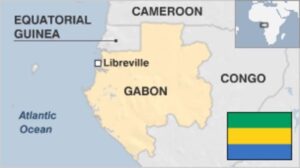Gabon wants to replace its share of oil in its GDP with revenues generated from sustainable timber exploitation.
The Gabonese Minister of Environment and Forests, Lee White, made this known in a media release on the 8th of July, 2020. He said the reasons for this intention of the government is to eliminate the dangers of pollution associated with oil exploitation and to create at least 50,000 jobs through the exploitation of wood.
To achieve this, the government has established any wood processing plants in Nkok, a special economic zone located about 27 kilometres from the country’s capital. The Minister said the government will create other special economic zones in the cities of Lambaréné and Franceville, south-east Gabon, which will lead to the creation of about 5,000 jobs over the next year.
The Central African country which 85% of it is vastly covered by forests has been sustainably exploiting wood since 1996. On December 31st 2001, it was made known by an open declaration in Law No. 016/01 on the Forestry Code, whose two main goals are forest management and industrialisation of the timber industry. A data by the World Food Programme (FAO) shows that close to 6.8 million hectares of forest have already been managed through 19 forest concessions.
Excerpts from Mr White’s release:
“We are currently finalising a strategy for the development of the forest-wood sector that will see the establishment of forest plantations and the creation of more than 50,000 jobs over 5 years.”
“It is through this strategy that the Gabonese forest will contribute more significantly to the national economy. Wood, a renewable resource when exploited in a sustainable manner, could as early as 2030 replace oil in our economy.”
The United Nations organisation advocates for smaller concessions that are not covered by the new forestry code. The UN has pushed for all its forest management and industrialisation prescription to allow a long rotation of 20 to 30 years to be followed towards vast concessions with considerable resources.
The forestry sector is the largest private employer and the second-largest source of revenue to the government from natural resources.

